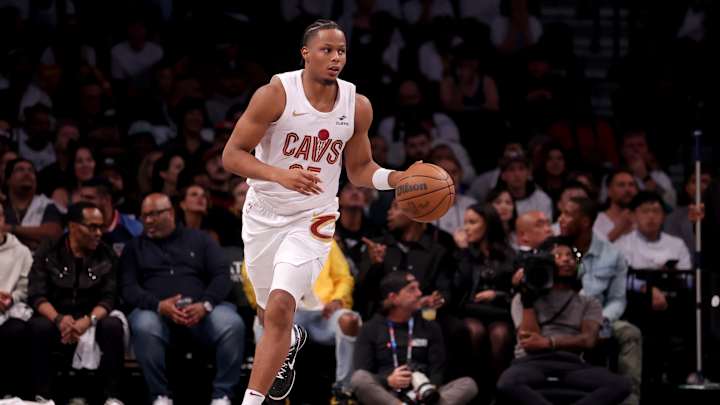What Cavs Can Learn From Former NBA Champion Warriors, Spurs

Putting an electric burst and increased tempo on display in the first half of their season opener, the Cleveland Cavaliers got off to a 12-point lead less than five minutes into the game against the Brooklyn Nets. They continued their beautiful ball movement and objective of getting the ball up the floor off misses and forced turnovers for the entirety of the opening half.
In the next 24 minutes, particularly the fourth quarter, that energy and pace began to revert to Cleveland’s typical half-court style. The Nets heated up in key moments and ended up taking advantage of empty possessions and some miscues the Cavs made, eventually reclaiming the lead by six points with eight minutes left in regulation.
Cleveland battled through and used defense to rally a few different times until coming out victorious at the end.
Cavs Insider asked head coach J.B. Bickerstaff about the tale of two halves and the bogged down late-game execution, which a fan asked about in our latest edition of Cavs Questions. His answer may provide some clarity on what he’s looking for in crunch time and how it’s not just exclusive to his team.
“I think it's typical NBA basketball. I think that's where we have to continue to break habits,” Bickerstaff said after Thursday’s film day. “The game slows down in the fourth quarter, typically. But if you're really good early in the clock and moving and all that stuff, why not continue it? So I think what we're doing is we're trying to just break habits that you see all over the NBA.
“You talk about the [Golden State] Warriors of past, the [San Antonio] Spurs of past — they understood in the fourth quarter in a six-point game what a transition three or a transition dunk could do as a momentum shift to kinda shut the lights out. But when you look at typical NBA basketball, people slow down in the fourth quarter, they try to orchestrate more things. So I think for us, it's just a matter of breaking those habits and, again, finding the balance of who we are.”

Bickerstaff made it clear that he doesn’t want a squad that sprints back-and-forth 94 feet without a purpose. He wants the Cavs to be explosive after stops and steals and blocks, while simultaneously being able to grind a game out. That takes some getting used to.
“It's just what happens after a miss. Having the confidence to keep running and make the right play going at speed instead of slowing it down, letting the defense get an opportunity to set,” Bickerstaff explained. “Isaac Okoro is elite in the open court and puts a ton of pressure [on you], so if he's running, let's throw him the ball and give him an opportunity to make that play.
“It's our comfort zone to be cautious in those moments and make sure you get a shot, but I think you have to feel free. When you play that way [up tempo], you do turn the ball over more, so you want to limit those mistakes, so guys kind of pull back a little bit. We just have to get confident enough to do it and do it the right way.”
Back-and-forth with J.B. Bickerstaff about the #Cavs getting bogged down in the fourth quarter was interesting. Listen in: pic.twitter.com/2kkDWkQbSr
— Spencer Davies (@SpinDavies) October 26, 2023
For what it’s worth, in an extremely small sample size, the Cavs put forth a 116.3 offensive rating vs. the Nets, per Cleaning The Glass. That is a sign that points in the right direction.
